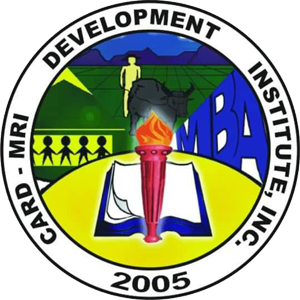CMDI conducts seminar on premarital sex, STDs and teenage pregnancy
The Guidance and Counseling Office in collaboration with the CMDI Clinic both under the Office of the Student Affairs and Services (OSAS) spearheaded the very first seminar on relationship, premarital sex, Sexually Transmitted Diseases (STDs), and teenage pregnancy on February 8, 2017 at the CARD-MRI Development Institute, Inc. (CMDI) Auditorium, Brgy. Tranca, Bay, Laguna, which was attended by more than 100 senior high school and college students.

The CARD-MRI Development Institute, Inc. (CMDI), conducted the first seminar on relationship, premarital sex, Sexually Transmitted Diseases (STDs), and teenage pregnancy, entitled, “Boy-Girl Relationship: Bakit Masarap ang Bawal, Bes?” on February 8, 2017. (Photo by Robielyn Villamor)
“We conducted this seminar because it is part of the line up of activities of the Guidance and Counseling Office for the entire year and this is very timely,” said Ms. Rona Almagro, OSAS Officer-In-Charge (OIC). The one-day program aims to: 1.) deepen understanding of the youth regarding premarital sex and teenage pregnancy as one of the critical issues in the Philippine society; 2.) protect students from the consequences and complications of premarital sex through information dissemination; 3.) instill the value of responsibility and maturity; and 4.) inform students to lessen the risky behaviors they might make in the near future.
Rising cases
As presented in the seminar, recent statistics in the Philippines, show that one in every three youth aged 15 to 24 years old has engaged in premarital sex or “sex before marriage”, an increase of more than 14% from almost two decades. Also, approximately 6.2 million youth have engaged in premarital sex where 78% were unprotected sex. Thus, proliferating the risk of teenage pregnancy and STDs.
Because of its widespread occurrence, “we will continue to have this particular information dissemination for all the students because we don’t want them to contribute to the problems of our society and we’re doing this to protect the youth,” stressed Ms. Jenny Lyn Casano, Registered Guidance Counselor of CMDI and one of the resource persons.
According to Ms. Casano, majority of Filipinos are Catholics and have conservative and sacred traditional beliefs. While some schools are intolerant of sexuality issues, CMDI sees enlightening students with the realities of life necessary.
The causes
Premarital sex is influenced by factors such as —peer pressure, curiosity, temptation, and social media. But first of all, “it starts with the dating practices,” asserted Ms. Casano.
As mediated by technology and social media, pornography in all its forms, influences the behaviors of youth aged 15 to 24 years old, leading to experimentation that urges them to do sexual activities.
For life
Indeed, premarital sex is problematic because it may lead to different health complications for both men and women —STDs including Human Immunodeficiency Virus (HIV); Acquired Immunodeficiency Syndrome (AIDS); and Sexually Transmitted Infections (STIs).
Globally, almost two million children aged less than 15 years old comprise the more than 36 million people infected with HIV. As of 2015, the Department of Health (DOH) recorded more than 24,000 cases in the country.
“Once you have HIV, you have it for life, there’s no cure but can be treated with Anti-Retroviral Therapy (ART). It only prolongs the life of the infected person but the viral load is still in the human’s body,” highlighted Ms. Iya Aspiras, Registered Nurse of CMDI and one of the resource speakers.
The symptoms of HIV cannot be easily determined, “the only way to know that you are infected is to get tested,” she added.
Prevention is definitely better than cure, that’s why she further explained the “ABC of HIV prevention: Abstinence, Be faithful, and Condom use”.
Face the consequences
Teenagers engaging in premarital sex seemingly forget the consequences they might face once unwanted and unexpected pregnancy occurs—leading to risks. In fact, as further discussed by Ms. Aspiras, almost 10% of the babies born by young mothers are malnourished and according to the Population Institute of the University of the Philippines, more than 46% of pregnant teenagers resort to abortion, which violates law and morality.
Pregnant teenagers are at risk of dying early due to lack of proper medical care. Their babies may also be miscarried or suffer premature birth, down syndrome, and other defects. They also contribute to the increasing school drop-out rates, leaving their potentials unfulfilled.
In his closing remarks, Dr. Edzel Ramos, Dean and Institute Director of CMDI, stated the physical, physiological, psychological, and emotional effects of being young parents. “You have to think not only yourselves but also the people who love you and those who are pushing you to succeed. If you really value the sacrifices of your parents, you have to think twice because once you’re there, there’s no turning back,” advised Dr. Ramos.
According to Ms. Casano, premarital sex is a question of responsibility, maturity, and readiness. Meanwhile, according to a senior high school student, Sharon Abutan, “Parenthood is not an easy task so always think of the consequences before you act,” then she added “thank you very much for giving us the opportunity to gain additional knowledge and to become more aware of our responsibilities as individuals.”
According to Ms. Glenda Lagarile, Deputy Director of Degree Educational Partnership (DEP), the institution plans to conduct the same seminar with the same set of goals this coming July for a new batch of students.

The seminar concluded with the awarding of certificates of appreciation to the resource persons who shared their valuable knowledge and expertise. (From left to right: Ms. Analeen Suelto, Senior Program Manager; Ms. Glenda Lagarile, Deputy Director for Degree Educational Partnership (DEP); Ms. Iya Aspiras, CMDI Registered Nurse and Resource Person; Ms. Jenny Lyn Casano, CMDI Registered Guidance Counselor and Resource Person; and Dr. Edzel Ramos, CMDI Dean and Institute Director.) (Photo by Robielyn Villamor)
by Dianne B. Ubaldo
